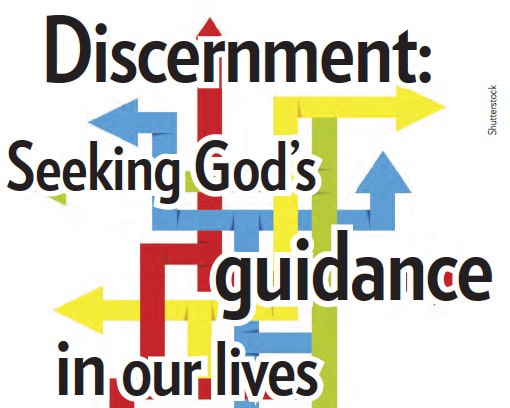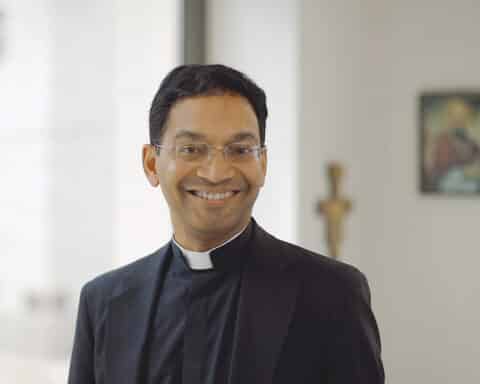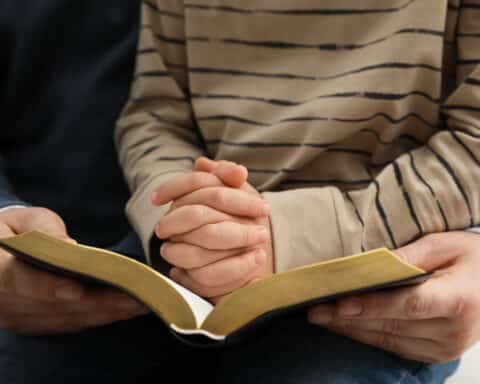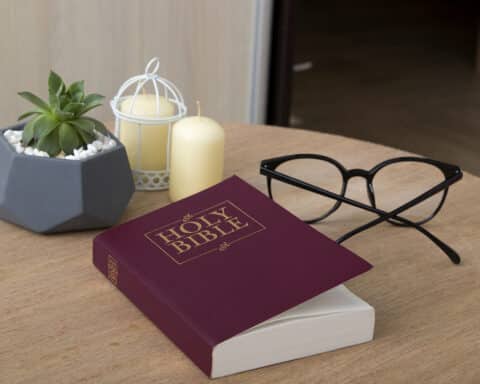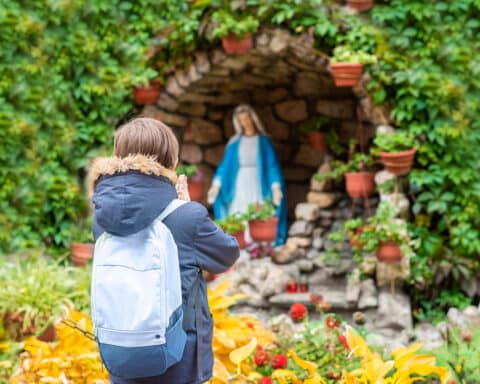During the five years of Pope Francis’ leadership in the Catholic Church, the word discernment has become well-known. At the root of his April 2018 exhortation on the call to holiness, Gaudete et Exsultate, is discernment.
Discernment is a process for making good decisions in a prayerful context and can be practiced personally and/or communally.
Pope Francis has called an assembly of the Synod of Bishops for this October to engage in communal discernment of how best to share Christian faith with younger generations. This past spring, he gathered 300 young delegates from all over the world in Rome to provide data and reflections to aid this process of discernment. The delegates produced a report, which was then utilized to create the recently released working document that will guide the synod discussions.
I have tried to practice personal discernment regularly in my own life, especially in making important decisions about good courses of action. Should I take this path or that one? In pastoral work, I learned about communal discernment from the couples in the Catholic Engaged Encounter movement. They practiced a form of communal discernment in choosing which couple would lead the regional group in the coming two years.
Based on all this experience, here are a few reflections on discernment. I draw on the teaching of my religious community’s patron, St. Francis de Sales (1567-1622). My focus will be on personal discernment, since this process is of more immediate help to those who wish to practice discernment, but much of what I mention will apply to communal discernment as well.
Being rooted
The deep background for discernment is prayer and reflection on the Scriptures. By internalizing Jesus’ message and example — and those of Mary, Joseph, Peter, Paul and others — we prepare ourselves for good decision making.
Every time I pass beggars on the streets of Washington, I am aware of the parable of the Good Samaritan. I ask myself if I am the priest who walked by in the parable. I realized years ago that I had internalized the message so much that my frame of reference is the parable. I evaluate situations intuitively in light of the parables, teachings and example of Jesus.
Freedom to choose good
Discernment is characterized by freedom. We freely choose to follow the guidance of the Holy Spirit. We need to be free from external coercion and internal obstacles in making good discernments. If an authority figure is coercing us, discernment becomes difficult. Likewise, if we are almost paralyzed by fear and anxiety, we are not free enough to make a good decision.
Presuming that we are “free enough” from internal and external obstacles, how might we go about making a discernment between two good options, or about acting in difficult situations where the best choice is not self-evident?
Listen
One important dimension of discernment is listening. To listen we may need to turn down our electronics and avoid our Twitter accounts. Listening is not just hearing; it involves going deeper.
By listening we gain information about the alternatives. Others may offer us good information about the city of a possible new job. If we listen carefully, we may learn if we can afford to live there and about the local cultural resources. By listening to people in our area of expertise we may learn about the possibilities for ongoing education in the new position.
| Our Real Frame of Reference |
|---|
|
The Gospel is the framework for ongoing discernment.We humans are very much shaped by our environment, especially by our relationships with others. Even while we are in the womb, we are influenced by the actions of our parents. I’ve noticed, for example, how much the children of my nieces and nephews are formed each day by imitating the example of their parents. As we grow older, we reach the point of self-reflection where we question what we have learned. This is a positive and challenging process. For a while when I was younger, I struggled with whether science can explain everything. If so there would be no need for God. A wise priest introduced me to the substantive Catholic reflection on science and religion. This struggle and its resolution deepened my faith and spurs my continuing interest in the dialogue of religion and science. Today’s America presents success — particularly financial — as being more important than anything else. Such success enables consumption and “doing what I want.” There is substantive Catholic reflection on economics as well as on science. While success can be admirable, it is not central. Jesus’ death and resurrection transformed people, their world and the universe created by the Big Bang. Jesus’ life, death and resurrection are the ultimate frame of reference encompassing all. In this framework our goals and successes can be put in perspective. |
We listen to our spiritual friends — people of depth who have shared their prayer and good works with us, who know us well and who have our total well-being at heart. They can see our blind spots better than we can. Their advice is well worth pondering.
To listen we need to set aside our prejudices and predispositions. Sometimes this attitude is referred to as indifference. Part of the work of discernment is getting to the point where our own commitments and feelings do not prevent us from hearing the truth embedded in a contrary position. Those with radically different perspectives from our own can have the wisdom we need.
Deep listening requires us to be our best selves. The Holy Spirit can speak to us through unlikely or unexpected sources. God can surprise us. For instance, my own movement into the search for Christian unity (ecumenism) was prompted by two Episcopalian friends who invited me for lunch and conversation. I never expected that the conversation would eventually lead me into 20 years of ecumenical dialogue.
We must listen to what is going on inside of us. What are our motives? Do we have one or multiple motives? Is the need for achievement or recognition, which we have been schooled in by our culture, the primary factor in our decision making? What drives us? Is one of our motives love for others?
Do we have interior peace and joy when we think of one of the alternatives? Saint Paul reminds us in his letter to the Galatians (5:22-23) that peace and joy are signs of the presence of the Holy Spirit. We may need to wait patiently for these feelings to emerge. I find that when my anxious need to decide quickly or to stay busy gives way to inner peace and mindfulness, I am ready to decide.
Decide
After listening intently to both external and internal sources, we decide. Discernment of God’s will is not like solving a mathematical equation and getting the correct answer. Discernment involves listening and then weighing all that we have learned. This decision making takes place in a prayerful context.
Our decision sometimes will seem clear (for instance, “I should move to Chicago”). Or it could be highly probable (“We should ask Mom to move to the new senior living complex”) but hardly certain. Sometimes we will know we have to decide but still have significant doubts.
In the process
It can be helpful to write down all that we have learned by listening. In writing we can clarify our thinking and our feelings.
We need to work within a reasonable time frame. The position in Chicago may be long gone if we procrastinate on our discernment. We make our best decision within the time available.
It is helpful to recall that there always is an element of mystery in our relationship with God. Even great saints were not absolutely sure about what God was asking of them.
Ultimately, discernment can become part of our daily way of life. We try to understand and live the Gospel message; we prayerfully seek divine guidance; we listen intently; we pray over what we have heard; and we decide in a timely fashion.
Pope Francis reminds us that in discernment, we “approach the mystery of God, who helps us to carry out the mission to which he has called us, for the good of our brothers and sisters” (Gaudete et Exsultate, No. 175).

